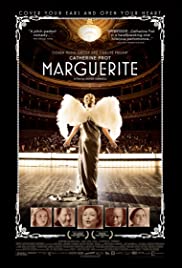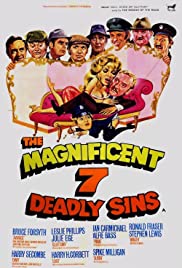
Paris in the 1920s. Marguerite Dumont is a wealthy woman with a passion for music and the opera. For years, she has performed regularly for a circle of guests. But Marguerite sings tragically out of tune and no one has ever told her. Her husband and her close friends have always encouraged her in her illusions. Things become very complicated the day she gets it into her head to perform in front of a genuine public, at the Opera.
You May Also Like

Two British beauties go to Barbados with a yacht captain who does not know what he’s in for.

Through a year of 30th birthdays, four best friends navigate relationships, heartbreak and a shocking situation that threatens to tear them apart.

Rita is fifteen and spends the summer between warm afternoons of teenage love and party nights with her friend Sara. From Portugal to the South Pacific, the pleasures of this routine will take a turn when the young girl visits the art show of a new neighbor in the local community.

An attempt to re-contextualize the European migrant crisis and ongoing hostilities in Syria, through eyewitness and participant testimony. Children and parents recount the revolution, civil war, air strikes, atrocities and ongoing humanitarian aid crises, in a portrait of recent history and the consequences of violence.

When Daniel, a death row inmate, hears the horrors of previous executions using new experimental drugs, he pleads for access to information on how to best face his own upcoming demise. What this faithless and hopeless prisoner finds instead, will shake up everything he has ever known and believed.

A quiet, stoic man, lives a monk-like existence in self-imposed exile. When his estranged son is killed in a drug deal gone bad, he is left to look after a granddaughter he never knew existed, and he is forced back into a life he tried to put behind him.

Pollyanna Whittier goes to live with her wealthy but bitter aunt after the tragic death of her father. Pollyanna shares a game her father taught her — the ‘Glad Game’ — in which everyone can find a silver lining in even the darkest cloud, and her sunny nature, good humor and determination to look on the bright side of life prove to have an astonishing effect on those around her. With the help of her orphaned friend, Jimmy Bean, she casts her spell on the grumpiest townsfolk of Beldingsville — including the cynical shut-in Mrs. Snow, the morose millionaire Mr. Pendleton and the enigmatic Dr. Chilton. And Pollyanna masterminds the romance between her Aunt’s maid, Nancy, and the handyman, Tim. It is only Aunt Polly, who cannot bring herself to embrace Pollyanna’s innocence and joy. But all is not straightforward in Pollyanna’s war against pessimism, since she must overcome a personal tragedy that threatens to banish “glad” from her vocabulary forever.

Does time exist when nothing changes? That is the question for the picturesque Village of Rockwell, where time has frozen. Nobody gets sick; nobody ages, and nobody dies due to a tragic bus crash that took the lives of the 1977 undefeated Rockwell High School Basketball Team.

Beekeeper Eva uncovers an ancient fresco while rescuing a hive. Austen, a visiting archeologist, thinks it is key to his research, so he persuades Eva to help him on his quest across Malta.

The Magnificent Seven Deadly Sins is a 1971 British comedy film directed and produced by Graham Stark. Its title is a conflation of The Magnificent Seven and the seven deadly sins. It comprises a sequence of seven sketches, each representing a sin and written by an array of British comedy-writing talent. The sketches are linked by animation sequences. The music score is by British jazz musician Roy Budd, cinematography by Harvey Harrison and editing by Rod Nelson-Keys and Roy Piper. It was produced by Tigon Pictures and distributed in the U.K. by Tigon Film Distributors Ltd..